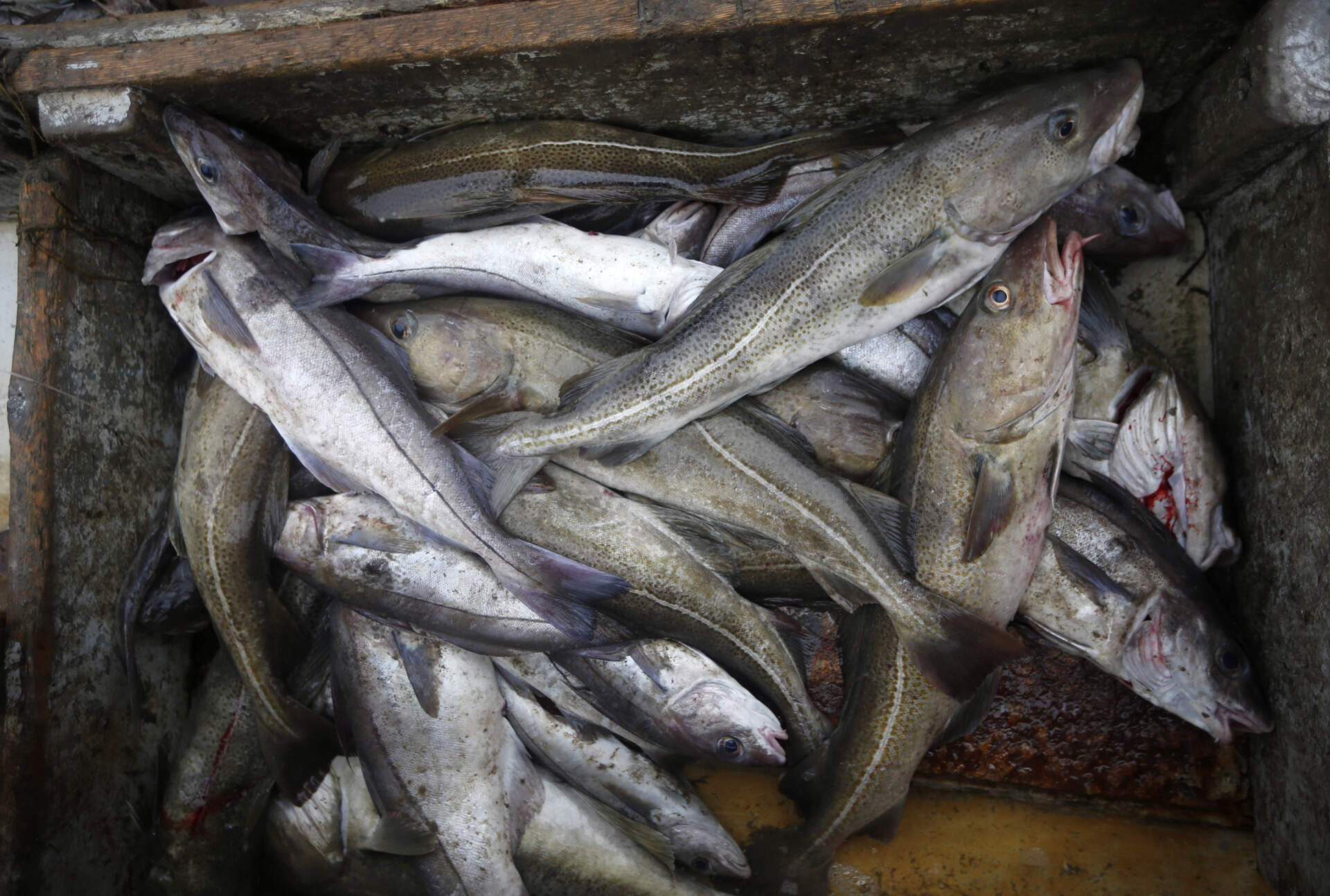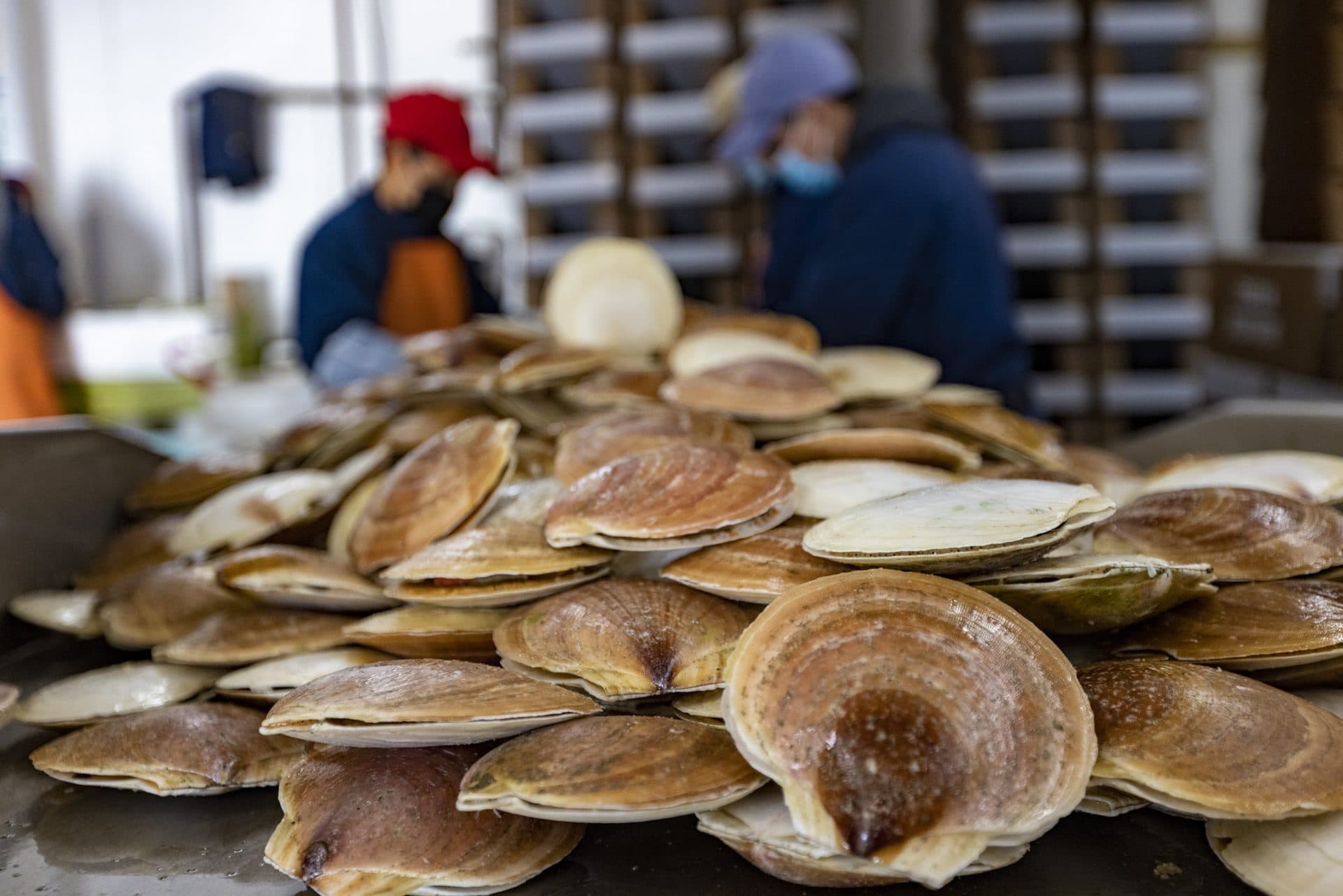Advertisement
NOAA slowdowns and new science delay the usual 'scramble' to set fishing catch limits

The start of this year's commercial fishing season could be a bust for fishermen who catch groundfish species like cod, haddock and flounder.
The National Oceanic and Atmospheric Administration has yet to approve new catch limits for the season slated to open May 1. People in the fishing industry said the annual process has been delayed by changes to the science used to measure cod populations, and the Trump administration's cuts to the agency.
The fishery is in the final week of the current season, and if the regulations aren't finalized in time for the new season to begin, the fishery may close. That would deal a blow to many fishermen who already struggle to make a living.
" People's livelihoods and businesses depend on it," said retired groundfish fisherman Frank Mirarchi of Scituate. A delay would be especially hard coming off a brutal winter that Mirarchi said hurt many fishermen's bottom line.
" People are kind of looking [at] borrowed money right now to keep their businesses going, with the expectation that spring will begin a new infusion of cash flow to their businesses," he said.
Although delays for fishery regulations are common, especially during the transition to a new presidential administration, industry observers said this year presented unique challenges.
"Fisheries managers are sort of always working against the regulatory clock," said Chris McGuire, ocean program director for The Nature Conservancy. "That race to get a fishery open, that slowed down even more than usual."

In February, the Trump administration cut about 1,200 NOAA staff, including some who are key to fisheries management. The mass firings came as the agency mulled changes to how it manages the cod fishery, complicating the usual "scramble" of getting regulations in place, according to McGuire.
" It really is sort of a perfect storm," he said.
Because cod is caught alongside other types of groundfish, any holdup could halt the entire groundfish fishery, McGuire said.
A spokesperson for NOAA fisheries said in an email staff "are working to ensure that all necessary processes and reviews are being conducted in accordance with the guidance provided by NOAA and relevant administration directives."
There are steps NOAA could take to allow the fishery to open on time, according to industry experts. The agency could issue an emergency regulation in the next month, McGuire said, although it's unclear what the rules for cod might be.
Advertisement
The New England Fishery Management Council develops each season's regulations, which NOAA then approves. Spokesman Alex Dunn said as of this week, there aren't any default or back-up catch limits for cod. NOAA officials could revert to last year's regulations, and allow fishermen to catch 75% of that limit, according to Dunn.
Mirarchi, the retired fisherman, said his former colleagues are frustrated that government bureaucrats are making them "wait until the last minute before we're told whether we can go fishing or not."
They're also concerned the new regulations, once finalized, may ignore their questions about the scientific data used to develop the plan, and its anticipated economic impacts.
The proposed regulations rely on genetic testing data to identify different cod populations and assign each its own catch limit. Mirarchi said the changes would force fishermen to rethink their entire fishing strategy.
" Even if there wasn't a delay, there would still be a lot of concerns," said Jackie Odell, executive director for the Northeast Seafood Coalition who also serves on the New England Fishery Management Council.
Bill Amaru, a Cape Cod-based fisherman, fishes in state-controlled waters, so he said he's not affected by the delay in new federal regulations. But he said he feels for the dock workers, fish sellers, ice distributors whose livelihoods will take a hit.
"If you can't earn any money to live, what would you do?" he said. "You're not in a position to have a lot of savings."
The delay further complicates a fishery that's already seeing rapid reductions in catch over roughly the last decade due to overfishing, government regulation and environmental changes.

Scallop fishery regulations also won't be finalized by the season's start on April 1. But since there aren't new regulatory strategies under consideration like with cod, there are default catch limits in place for scallops. Scallopers are facing just 10 fewer fishing days at the start of the season.
Drew Minkiewicz, an attorney representing the Sustainable Scalloping Fund, said this "doesn't have much of an impact" on the fishery. He's expecting new limits to be approved within a week of the start of the season.
Scalloper Eric Hansen of New Bedford said he's cautiously optimistic about an approval coming soon. He remembers a similar slowdown when the Biden administration took over four years ago.
" If history repeats itself, it won't be catastrophic," he said. "And that's a big if."
